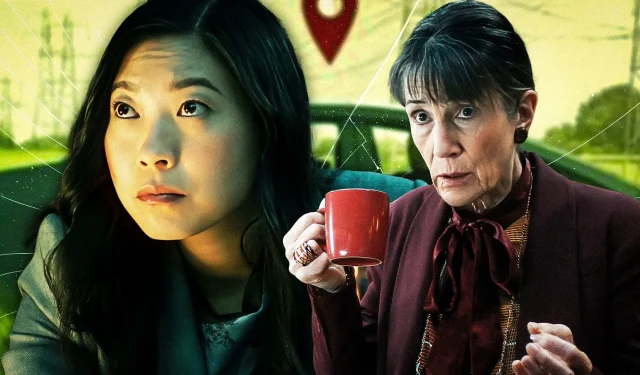Warning: Spoilers ahead for Black Mirror season 7, episode 3, “Hotel Reverie.”
The Bittersweet Conclusion of “Hotel Reverie”
In its season 7, episode 3, titled “Hotel Reverie,”Black Mirror delivers a poignant and unforgettable finale. Unlike some episodes that revisit familiar faces, this installment introduces viewers to fresh characters. Central to the narrative is a groundbreaking technology called Redream, which enables actors to immerse themselves in remakes of classic films. This allows them to interact with AI-generated characters while adhering strictly to the scripted story.
Redream appears to offer a solution for actress Brandy Friday (played by Issa Rae) and Judith from Keyworth Pictures, who are desperate to turn around the fortunes of their faltering film studio. However, as is typical in the Black Mirror universe, chaos ensues when Brandy deviates from the script. Her decision to fall in love with the AI construct Clara (Emma Corrin) complicates everything, culminating in a personal toll for both women. Although the remake of Hotel Reverie becomes a sensational success, it comes at an emotional cost.
Clara’s Bold Choices in the Story
Casting Off Her Preordained Fate
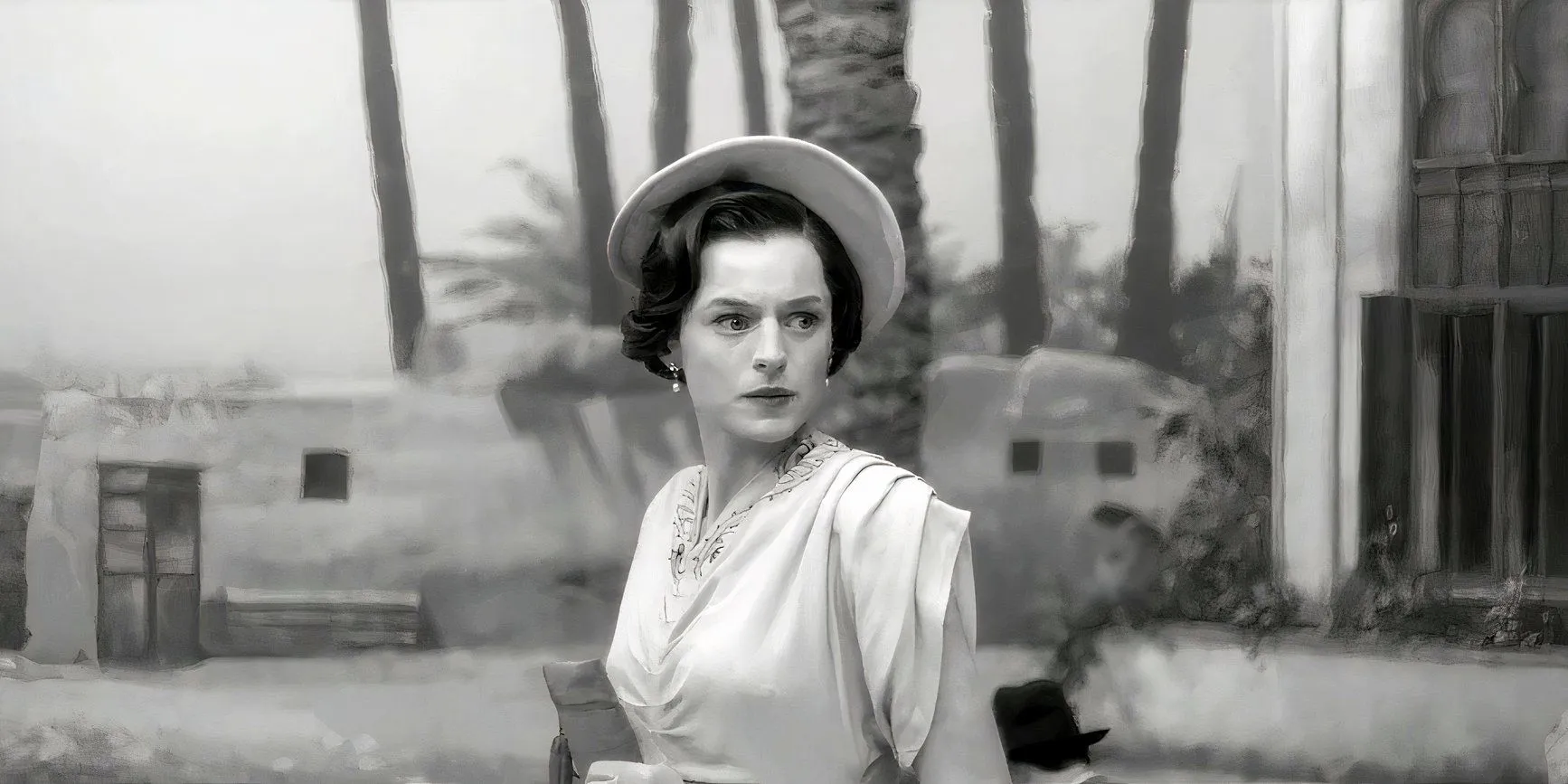
Brandy’s journey isn’t the sole catalyst for change in the narrative; Clara also breaks away from her limitations. In a climactic scene, she shoots her husband Claude (Stanley Weber) and Inspector Lavigne (Farid Larbi) to protect Brandy, resulting in her own fatal confrontation. This action signifies Clara’s awakening to her free will—a choice that defies her earlier programming as an AI character bound to a narrative.
Throughout the episode, Brandy questions Clara’s affections, unsure if they’re rooted in genuine emotion or mere code. Clara’s ultimate act of sacrifice—testament to her authentic love—brings the episode’s poignant themes to the forefront, allowing Brandy to complete her role and return to reality, thus escaping a dual demise in both the film and real life.
The Implications of Brandy’s Phone Call with Clara
Hope for a Future Together
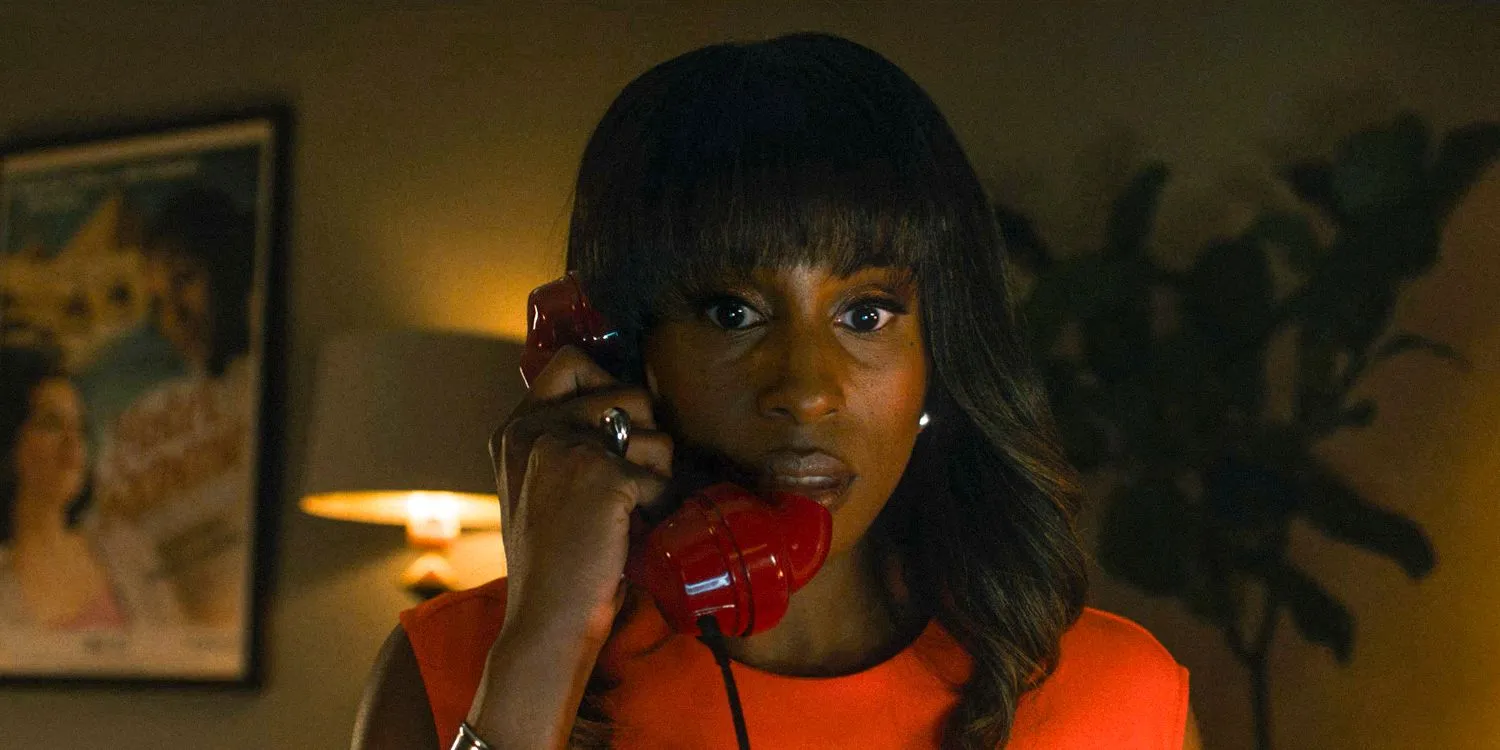
After Brandy’s return to reality and the successful streaming of the Hotel Reverie remake, she receives an unexpected gift from Kimmy (Awkwafina), representing Redream: a device that reconnects her with Clara alongside a vintage rotary phone for communication. Their conversation begins to rekindle their bond, yet logistical barriers remain—this iteration of Clara lacks memories of their shared past, leading to a complex dynamic.
Brandy and Clara may find themselves in a challenging long-distance relationship. Rae describes the ending as “bittersweet,”emphasizing that while reconnection is possible, the profound distance between them will persist, complicating emotional exchange. Nevertheless, their exchanged sentiments signal a flickering hope for rekindling their romance amidst this challenging landscape.
Understanding the Mechanics of Redream Technology
Flaws of Advanced Innovation
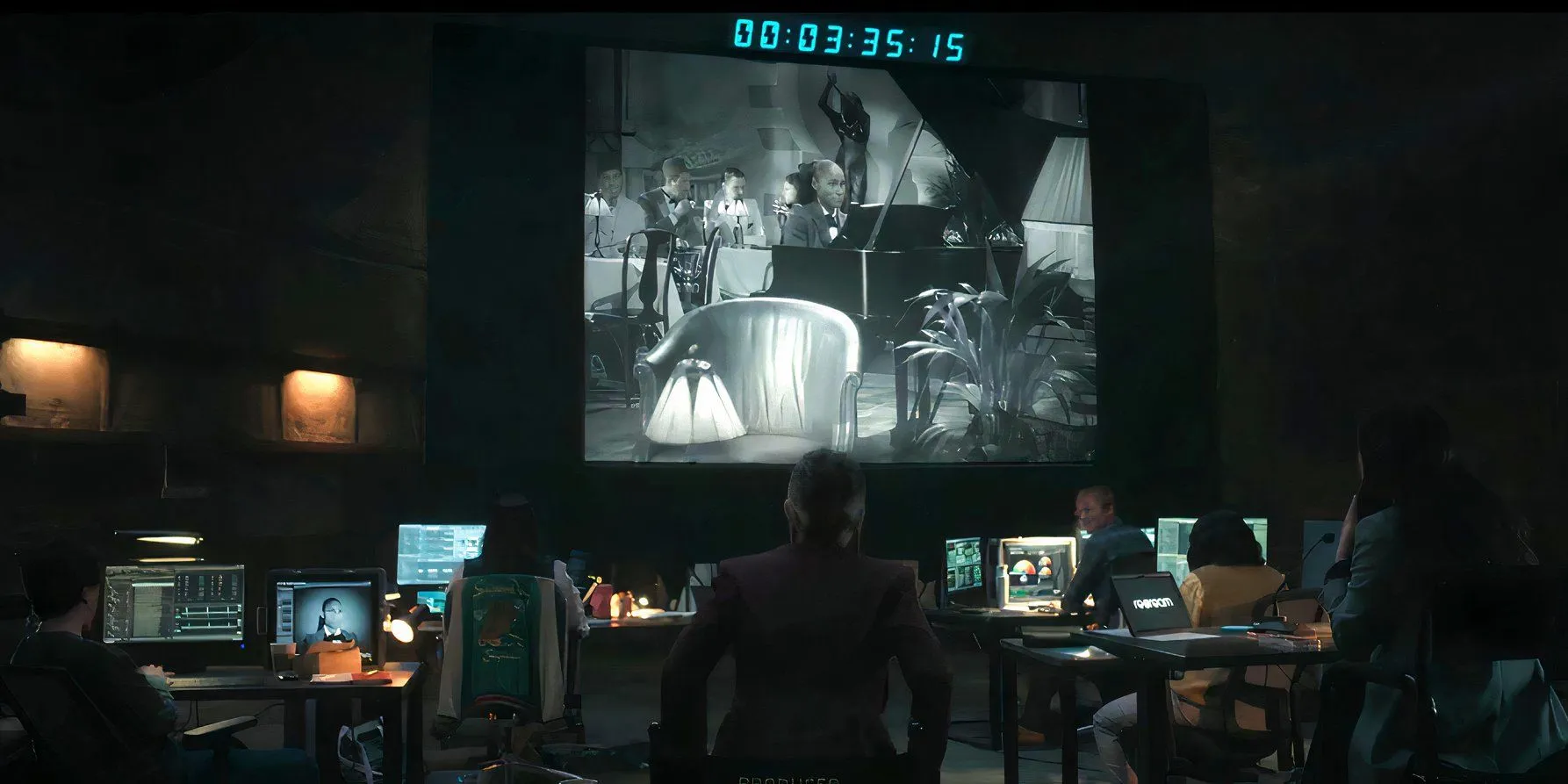
The Redream technology, explained by Kimmy, enables real-time remakes of films, creating a virtual environment enriched with AI entities that reflect every nuance of the original movie’s aesthetic and characters. Actors like Brandy find their consciousness transferred into this realm, while their physical bodies remain in the real world. However, AI constructs perceive Brandy as Dr. Alex Palmer, a character whose identity has been gender-swapped.
Complications emerge when Brandy, stepping off-script, sets off a sequence of events that destabilizes the film’s narrative structure. The chaos not only affects Clara’s character development but also triggers a catastrophic stack overflow, jeopardizing Brandy’s safe extraction from the Redream environment. Without proper guidance or communication due to a mishap caused by a careless crew member, she faces the looming danger as they develop a bond in a suspended timeline.
Consequences for Key Characters in the Redream Saga
A Closing Chapter of Success
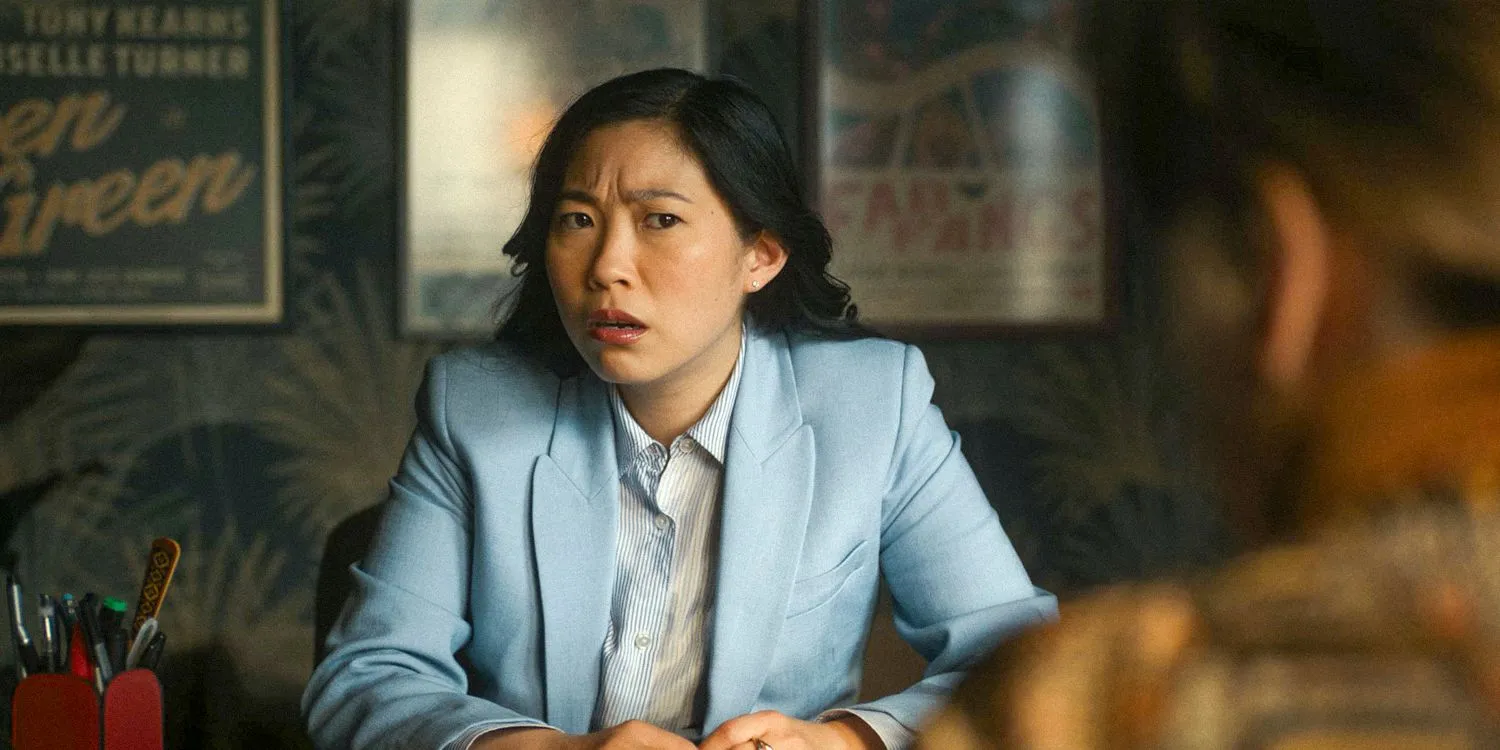
Despite the turmoil during production and Brandy’s near-fatal crisis, the remake of Hotel Reverie flourishes, becoming a streaming triumph on the platform Streamberry—an Easter egg nod to its season 6 introduction. The success of this project breathes new life into Keyworth Pictures, allowing Judith to navigate the competitive landscape of modern cinema without jeopardizing her studio’s future.
The journey doesn’t just benefit Judith but also Kimmy, who sees potential financial gain in the studio’s new direction. Her gesture of sending the reconnecting device reflects an acknowledgment of Brandy’s sacrifices, suggesting a mutual benefit stemming from the trials of the Redream experience. Although the promise of innovative cinematic storytelling persists, the looming challenges of human error and the complexities of free will remain ever-present hurdles to navigate.
The Deeper Message of “Hotel Reverie”
The Dual Nature of Free Will
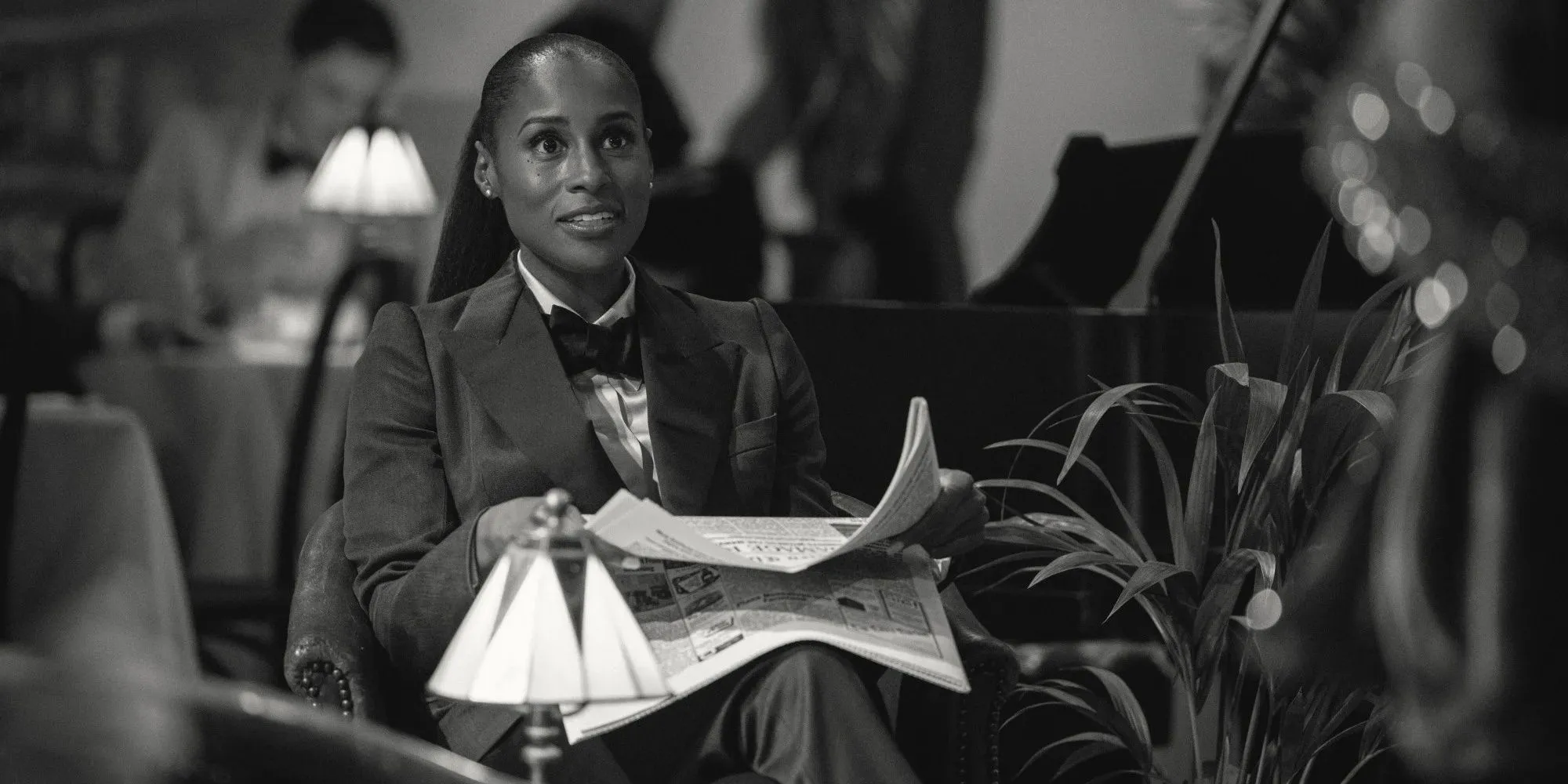
At its core, “Hotel Reverie”presents a profound examination of free will, embodying both its liberating potential and its inherent perils. The character Clara represents the struggle against societal norms, suffering under the weight of stigma, yet she ultimately defies these limitations by evoking memories that allow her capacity for choice. Her actions lead to moments of love, balanced by the devastating penalties of erased memories, highlighting the bittersweet nature of human experience.
The series conveys that while free will can empower individuals to forge genuine connections and evoke deeper emotions, it also invites irrevocable consequences. Brandy embodies this paradox, deriving joy and vitality from her choices, even contemplating remaining in the Redream universe despite the associated dangers. Ultimately, the narrative emphasizes that free will is a double-edged sword, allowing for profound beauty while also complicating relationships and experiences.
